The social-drama Thappad, starring Taapsee Pannu in the lead role, held a mirror to our patriarchal society and used domestic violence as a catalyst to start the discussion on patriarchy’s ill-effects on society.
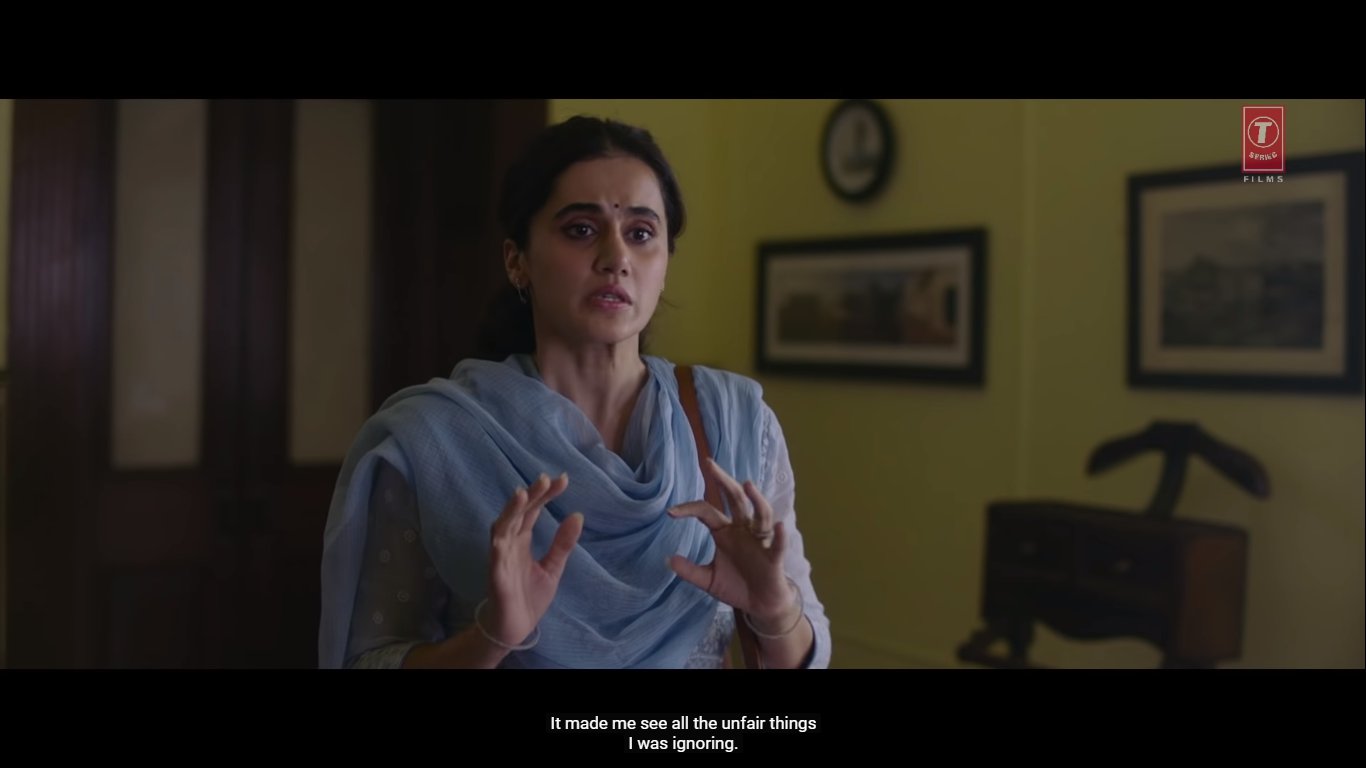
And while it definitely deserves all the accolades coming its way, it is by no means the first film to highlight the covert effects of patriarchy. In fact, 20 years before Thappad released, a film brought to light the inequality that exists in a patriarchal society.
Starring Tabu in the lead role, the film went on to win the National Film Award for Best Feature Film in Marathi. The film was Astitva.
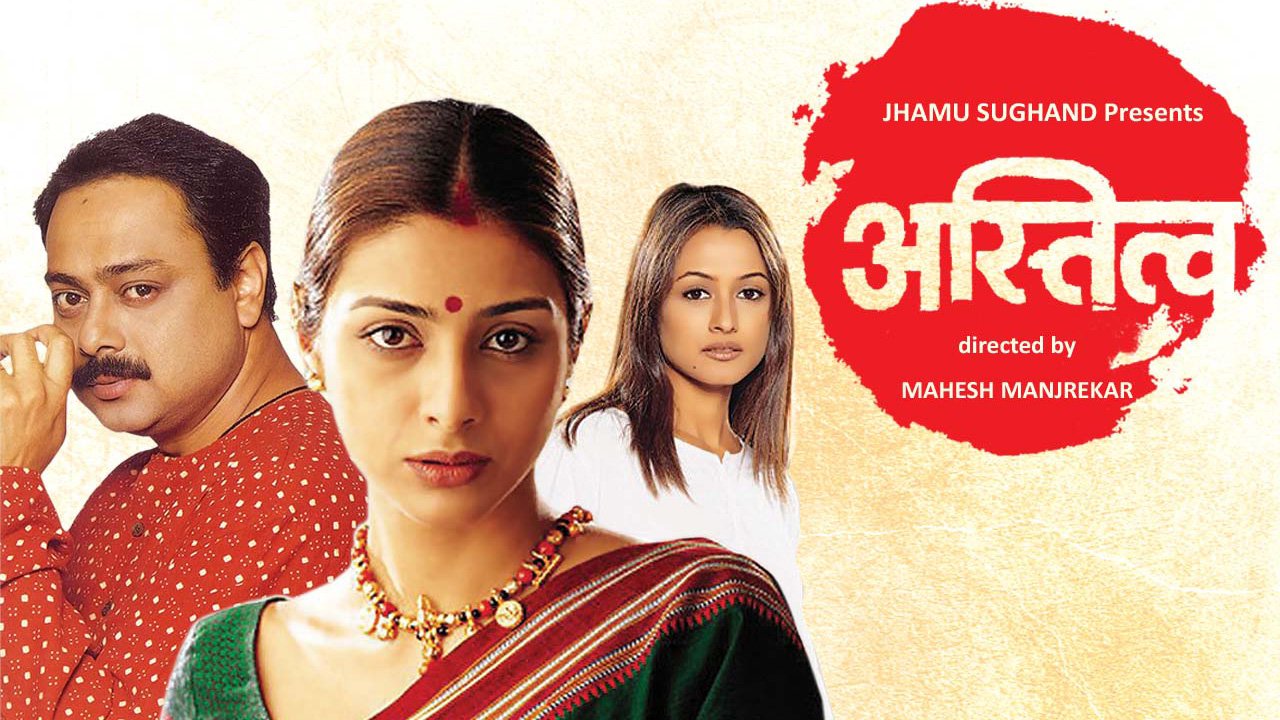
A bilingual drama released in 2000, Astitva was the story of a married woman Aditi Pandit (Tabu) who gets pregnant after having an extra-marital affair. 25 years later her husband Shrikant (Sachin Khedekar) gets to know the truth and questions her on the same. He raises a question on her character, despite the fact that he too had an extra-marital affair.
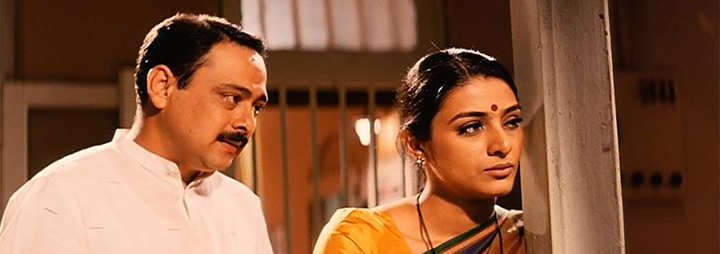
Much like Thappad used domestic violence as a catalyst to begin the discussion on existing gender inequality in the society, Astitva used extra-marital affair as a way of raising the mirror to society’s duality.
A movie far ahead of its time, Astitva wasn’t just a drama that focused on extra-marital affairs. Rather, its focus was also on male chauvinism, the encroaching effects of loneliness in a marriage, and the need to treat your partner with respect.
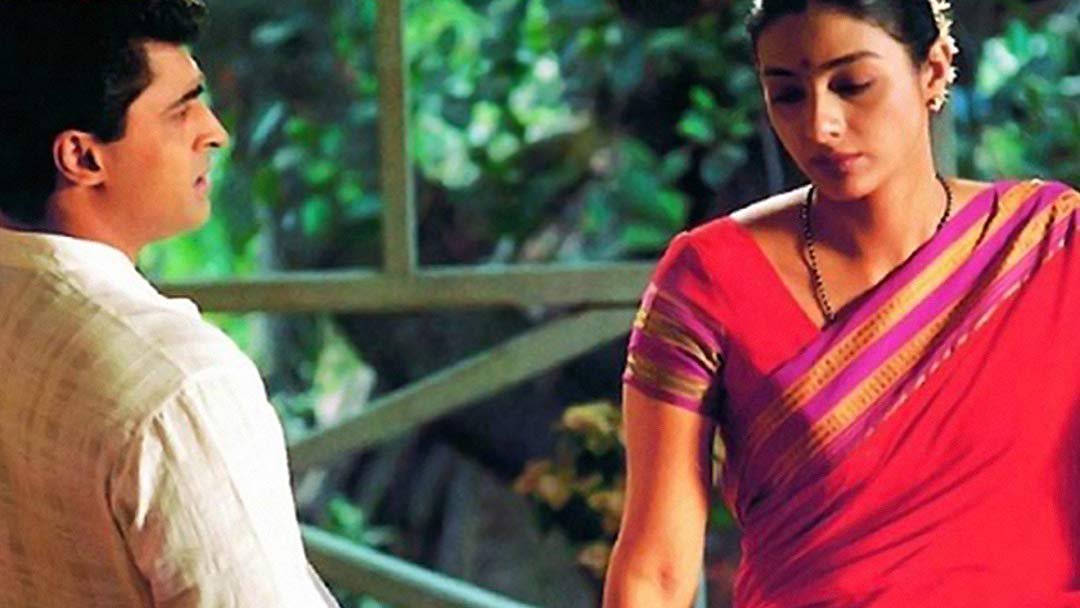
Right at the start of the film, we observe how Shrikant violates his wife’s privacy by opening a letter addressed to her. In the grand scheme of things, it may appear to be a minor transgression. But the idea wasn’t just to show the invasion of privacy, but to highlight how easy it was for Shrikant to do so. Almost like the fact that his wife can have an identity separate from him never occurs to him.
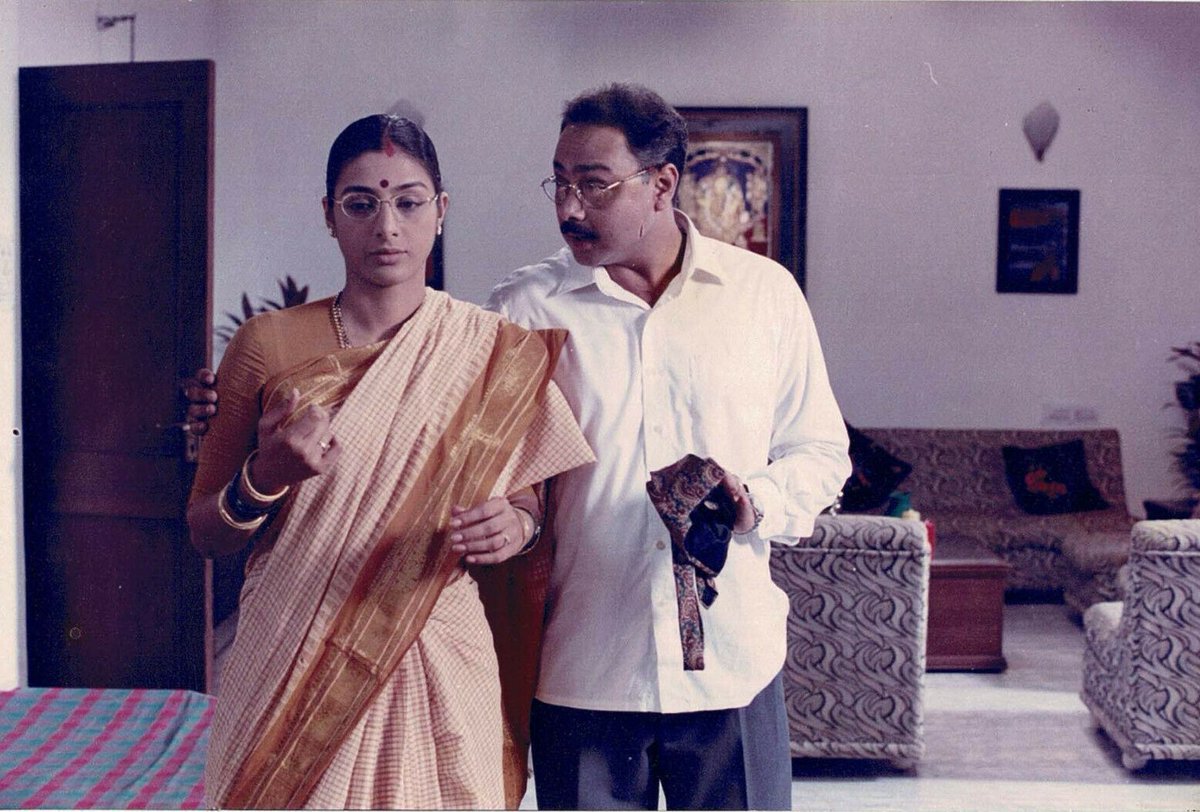
Similarly, despite the fact he has committed the same ‘sin’ that he blames Aditi for, Shrikant wastes no time in passing remarks on her character. Even when Shrikant’s hypocrisy is questioned by his friend, Shrikant refuses to face the truth. Aditi’s own son looks down on her, despite the fact that she raised him as a legitimate son and saved him from illogical social ridicule.
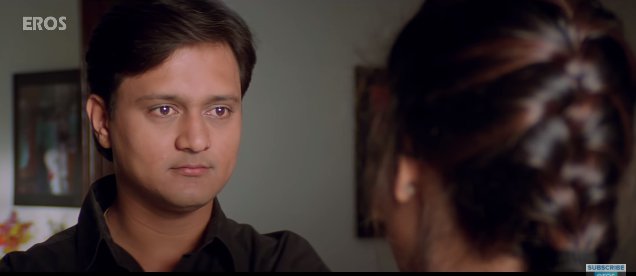
Additionally, Shrikant never pauses to consider why Aditi indulged in an extra-marital affair. He does not take responsibility for how he refused to let her work out of pride, and thus, left her alone for years when he was traveling. Nor does he pause to consider the loyalty, respect, and companionship he has received from Aditi over the years.
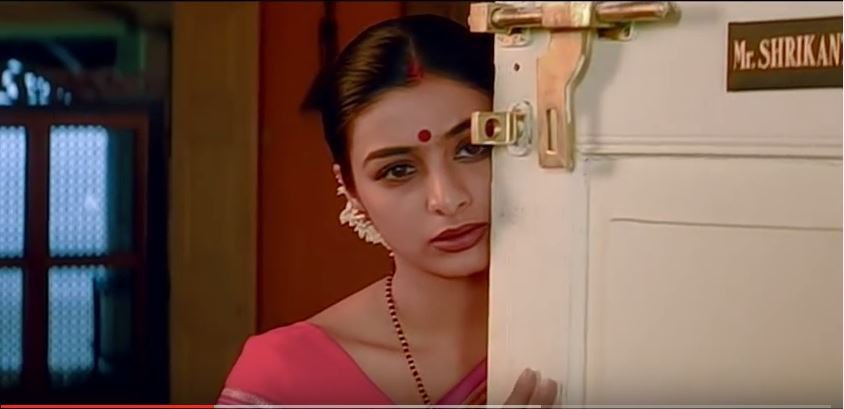
However, the film’s true win is the monologue in the end where Aditi finally questions Shrikant. Her questions are never targeted at his transgressions, but rather at his narrow viewpoint.
It is at this point that Tabu’s performance truly shines through. She is the epitome of dignified anger, where she does not allow physical actions to overpower her emotional speech for even a second. And yet she succintly puts across her point.
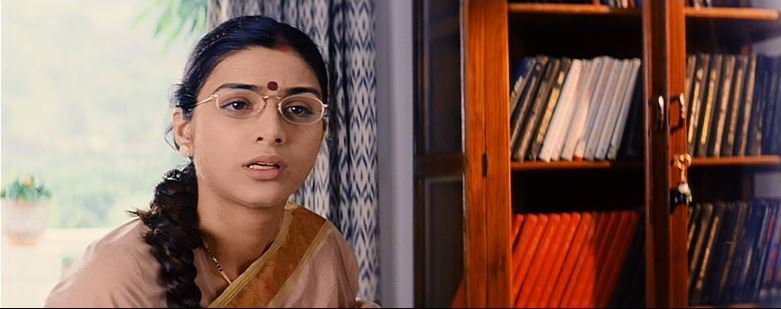
At the end of her speech, Aditi makes the decision to live life on her own terms and walks out of her marriage – leaving behind both, her son and her husband.
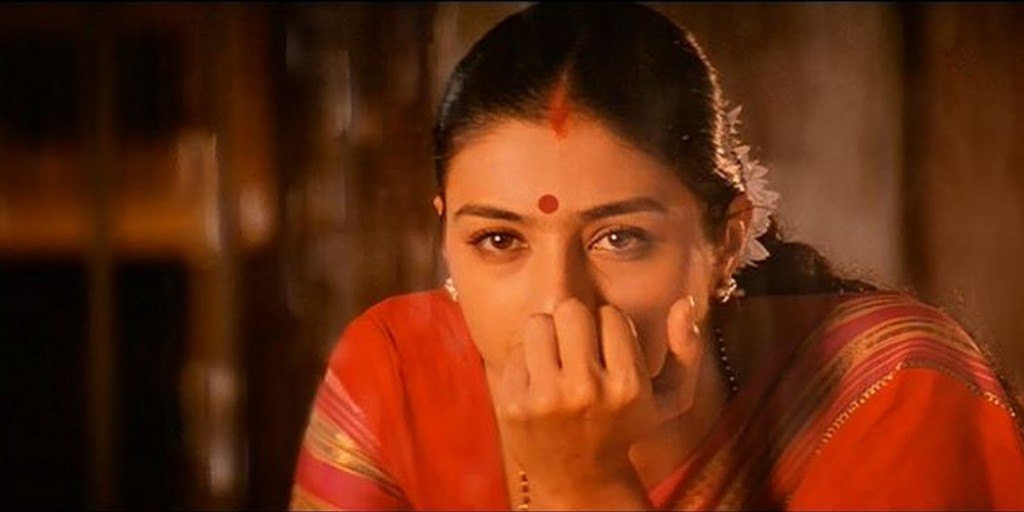
Astitiva raised important issues about what marriage entails for both the partners and how the onus should never be on a woman alone to keep alive the sanctity of a union. It also spoke about the strength of female solidarity, because one of Aditi’s greatest supporter is her to-be daughter-in-law, Revati.
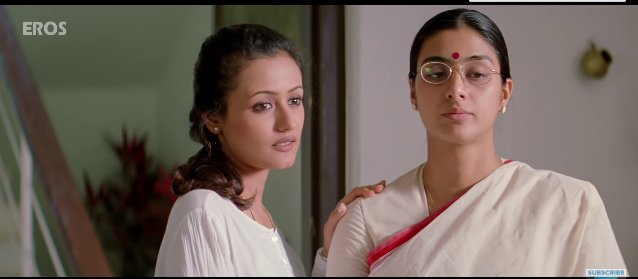
But ultimately, it was the story of how in a patriarchal society, women are always mistreated, and often by the very people and family members who should offer them support. Written and directed by Mahesh Manjrekar, Astitva was a socially relevant film rooted in reality, and far different from the larger-than-life romances that were becoming common at the time.
This is perhaps why, unlike most films from our childhood, it has aged beautifully. What is unfortunate though is how, so many points raised in the film, still stand true for the society we live in today

















